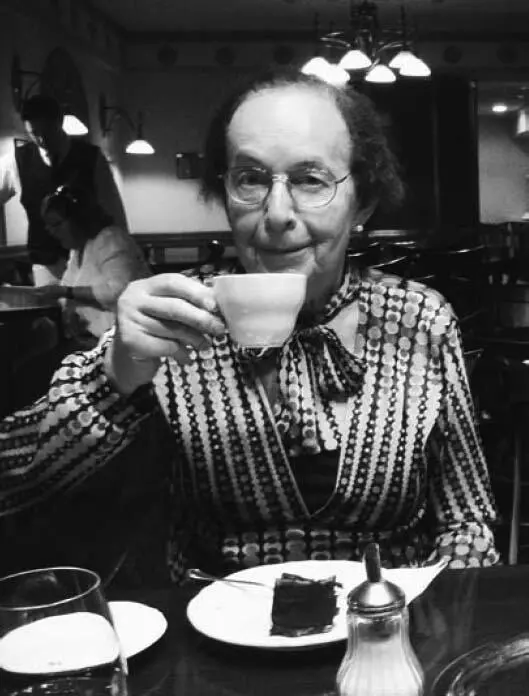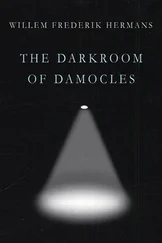
In the years after my father moved back to Hungary, he made regular pilgrimages to Vienna, often with his friend Ilonka in tow, to shop for the “correct” Viennese comestibles and tour the faded palaces and hunting lodges and architectural glories of Emperor Franz Josef’s nearly seventy-year reign, photographing the last vestiges of the empire that collapsed with the assassination of Archduke Franz Ferdinand in Sarajevo in 1914. Or he’d take Ilonka to Switzerland, where they paid homage to the ancient Habsburg Castle, the dynasty’s original seat. Or to Germany, where he made a long detour so they could cruise past the Bavarian villa of the then still living Archduke Otto of Austria, last crown prince to the Austro-Hungarian throne. “The best time was under the Habsburgs,” my father told me. “Even as a young child, I could still feel its good influence. If only we could bring the monarchy back—all of Hungary would welcome it.”
My father’s latest transition, from man to woman, debuted in the Habsburg emperor’s former guesthouse. Over coffee and Esterhazy cake one afternoon, she waxed nostalgic about the scene at what was now the Parkhotel Schönbrunn, where she attended the LGBT Rainbow Ball the year before her operation.
“Everybody was beautifully dressed, very elegant,” she said.
“Yes, I know,” I said. She had shown me the video she’d made of the ball, formal dancers in white satin gowns and black tie, white gloves, and cummerbunds, stepping in stately minuet formation across a polished parquet floor while an all-female orchestra played “Eine Kleine Nachtmusik.” At the end of the evening, each performer received a single rose.
“They always have good taste in Vienna,” my father sighed, licking the last speck of whipped cream from her demitasse spoon. “Even Ilonka enjoyed it.” In my father’s image gallery in the attic, she kept a photograph of the two of them at the ball. In the picture, he (still pre-op) is wearing a bleach-blond wig and a midnight-blue velour evening gown with spaghetti straps; Ilonka is in a plain navy sheath. They are holding hands. My father stares straight into the camera, with a pasted-on smile. Ilonka is looking away from my father, her mouth downturned. Her eyes are sorrowful.
“She didn’t want you to have the operation,” I said, a question.
“Ilonka thought it was a game. She never thought I’d go all the way with it. Ilonka wants nothing to change. Everything has to be the same way it was in the past. She even has to sit in the same pew in the church. I’m not like that. I get used to new things in five minutes!”
She grinned and took another forkful of cake. It seemed like a good moment to press my inquiry.
“Are you used to being a woman?” I asked.
“Waaall, that was easy.”
“How so?”
She held up her arms, as if for surrender. “Look at this,” she said, waggling her arms up and down, a fledgling out of the nest. “Does this look like a man’s body? I never developed. There’s hardly any hairs on my body.” Did this mean the Ugly Duckling had been a swan all along? “Waaall, I had the organs, I did my job, as a man. But I didn’t fit the role. They didn’t approve of me.”
“Who didn’t approve of you?”
“Women didn’t approve of me. I didn’t know how to fight and get dirty. I’m not muscular, I’m not athletic, I had a miserable life as a man. And it became more miserable when I wasn’t accepted for the umpteenth time. By your mother .” My father liked to characterize her that way, your mother. “She didn’t accept me and she threw me away.”
“She didn’t—”
“I wasn’t in the proper role. They can sense that. Now, as a woman, women like me more . I fit my role now better as a woman than when I was miscast in the wrong role.”
I flashed on hostile Magyar babushkas. “Why do you have to cast yourself in any role? Why can’t—?”
“Before, I was like other men, I didn’t talk to people. Now I can communicate better, because I’m a woman. It’s that lack of communicating that causes the worst things.”
“Like what?”
“They see you as some sort of monster. Because you are not doing the things others are doing. They don’t know what you do. You’re vermin. They gas you. They—”
We had fallen through one of my father’s verbal trapdoors.
“—don’t want you around. It’s like once when I was flying to Hungary, and the stewardess heard this man sitting across from me talking and she said, ‘Oh, you’re Hungarian!’ And this man said very angrily, ‘I am not Hungarian! I’m Israeli!’ This is a provocative attitude we don’t need. It helps that I’m a woman. Because women don’t provoke.”
“Some women do,” I provoked.
“You can’t switch back and forth,” my father said. “You have to develop a habit and stick to it. Otherwise, you’re going to be a forlorn something, not a whole person. The best way is not to change someone into someone else, but to put the person back as the person he was born to be. The surgery is a complete solution. Now I am completely like a woman.”
Completely, I thought, or completely like?
“You have to get rid of the old habits. If you don’t, you’re going to be like a stranger all the time, with this”—she fished around for the right words—“this anxiety of non-belonging.”
She repeated the phrase. This anxiety of non-belonging. She polished off the remains of her cake. “That would make a good title for your book,” she said.
She got up and started collecting the dishes. “Back to the kitchen!” she trilled as she left the room. “A woman’s place!”
I didn’t budge from my chair as she washed the cups and saucers.
“Susaaan!” My father was standing at the foot of the stairs. It was early morning, and I’d hoped to sleep in. My father had other plans. “Susaaan, come down here! You’ll be interested in this.” I threw on some clothes and stumbled into the dining room. She had set out on the table the contents of a file folder marked “Stefi.”
“These are my media appearances,” she said, pointing to a fanned-out collection of articles, a cassette tape, and a book. She’d given interviews about “The Change” to a Hungarian LGBT magazine (the only one at the time), an alternative radio station called Tilos Rádió (Forbidden Radio), an academic social-sciences journal called Replika , and a freelance photojournalist who was putting together a coffee-table book titled Women in Hungary: A Portrait Gallery , in which my father was featured, described as a “ feminista .” I studied the stash with some astonishment. All of Steven’s life, he’d been behind the camera; Stefi, it seemed, had decided she’d be in front.
The Stefánie who appeared in these pages and recordings was a bit of a coquette. She told her interlocutors that she was a “typical woman” who “loved gossip.” When they asked how old she was, my father answered coyly, “Now, it’s not appropriate to ask a lady her age!” In the photo spread for Mások , the Hungarian LGBT magazine, my father perches on the edge of a planter on her deck, in a floor-length floral dress with a ribbon at the waist. She is clutching two daisies. As she made clear in the accompanying article, she was 100 percent female, “a woman in complete harmony with her wishes.” She was taking dance lessons, she told the magazine, and could waltz “all the female steps,” and had attended a ball “in an elegant full dress.”
Читать дальше













